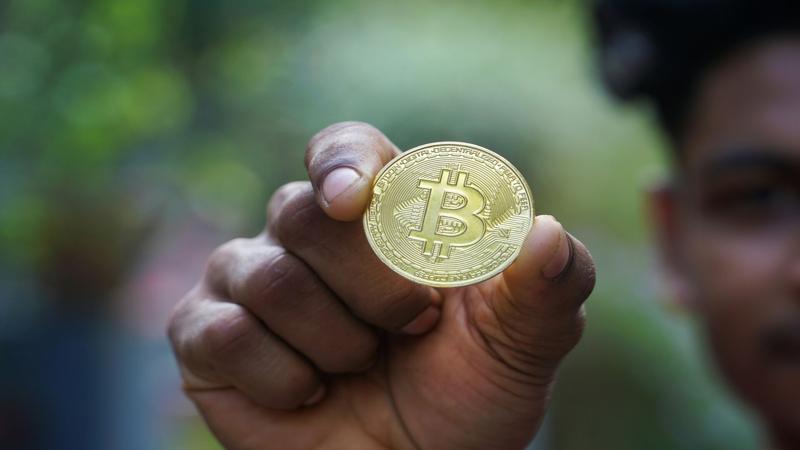(The Center Square) – Bitcoin and digital asset bills have been field in at least 31 state legislatures, according to a Bitcoin Laws website tracking state legislative filings. The website breaks down each bill filed and its progress in its respective chamber.
Digital currency bills have been filed in the state legislatures of Alabama, Arizona, Florida, Georgia, Iowa, Illinois, Indiana, Kansas, Kentucky, Massachusetts, Maryland, Michigan, Missouri, Mississippi, Montana, North Carolina, North Dakota, New Hampshire, New Jersey, New Mexico, New York, Ohio, Oklahoma, Oregon, Pennsylvania, South Carolina, South Dakota, Texas, Utah, West Virginia and Wyoming, according to the analysis.
As of Feb. 19, Alabama is the only state to enact a bill that established a Blockchain Study Commission. Another bill was also filed prohibiting the state from certain actions related to digital assets.
Multiple bills have been filed in Arizona that are either in committee or before the legislature. They relate to state agencies and crypto currencies, state retirement systems and digital assets, creating a digital asset strategic reserve fund, allowing for public money to be invested in virtual currency, among others.
In Florida, companion legislation was filed in both state houses to allow for public funds to be invested in Bitcoin. In Georgia, bills filed in the state assembly would create a State Depository Board and authorize the state treasurer to invest in Bitcoin. In Iowa, a bill filed in the state House authorizes the state to invest public money in digital assets and precious metals.
In Indiana, bills were filed in the state House related to digital asset mining and blockchain technology. In Kansas, a state Senate bill authorizes the state’s retirement board of trustees to invest in Bitcoin. In Kentucky, bills filed in the state House relate to digital assets and state financial practices.
Bills were filed in multiple states to create a Strategic Bitcoin Reserve Fund or Digital Asset Reserve Fund, including in Arizona, Illinois, Maryland, Michigan, Missouri, New Mexico, Ohio, Oklahoma and Texas.
A Michigan bill also addresses mining crypto currency in an area zoned for industrial use; several bills were filed in the Missouri legislature related to digital assets; bills were filed in the Montana legislature related to transferring BOI for investment in precious metals and digital assets and to create a Financial Freedom and Innovation Act.
In New Hampshire, bills filed in the state House authorize the state treasury to invest in precious metals and digital assets; a Digital Asset and Blockchain Technology Act was filed in the New Jersey Assembly and a bill was filed in the New York Senate to establish the New York state cryptocurrency and blockchain study task force.
In Ohio, companion legislation was filed to create the Cryptocurrency Reserve Act and Ohio Bitcoin Reserve Act. In Oklahoma, a Senate bill authorizes employee compensation and vendor payments to be made in Bitcoin, among other measures. In Oregon, bills were filed in both chambers related to blockchains.
In North Carolina, a bill was filed in the state House to create a Digital Assets investments act; a bill was filed in the South Carolina Senate related to cryptocurrency.
In North Dakota, a bill was filed related to digital assets and precious metals; resolutions were filed “directing the Legislative Management to consider studying political subdivisions making investments in stablecoins” and encouraging the state treasurer and state investment board “to invest select state funds in digital assets and precious metals.”
In South Dakota, a House bill would permit the state to invest in Bitcoin and a House resolution urges the State Investment Council to invest in Bitcoin.
In the Texas Senate, bills were filed to establish the Texas Strategic Bitcoin Reserve, create an administration of it, and allow for the state to invest in cryptocurrency.
In Utah, a House bill proposes blockchain and digital innovation amendments; a West Virginia Senate bill creates a state treasurer Investment in Precious Metals and Digital Currency Act; a Wyoming House bill proposed a state-funded investment in Bitcoin.
Several bills have already failed in Wyoming, Pennsylvania, North Dakota and Mississippi.
Wyoming’s bill authorizing state funds to be invested in Bitcoin is dead, as is a Pennsylvania bill authorizing the state treasurer to invest in Bitcoin or digital assets; a North Dakota bill authorizing digital asset investments in precious metals, and a Mississippi Blockchain Basics Act, according to the analysis.
State legislatures are considering digital currency legislation after President Donald Trump on his third day in office issued an executive order “to establish regulatory clarity for digital financial technology and secure America’s position as the world’s leader in the digital asset economy, driving innovation and economic opportunity for all Americans.”
The order established the Presidential Working Group on Digital Asset Markets to develop a federal regulatory framework to govern digital assets, including stablecoins, and consider creating a strategic national digital assets stockpile. The working group is chaired by the White House AI & Crypto Czar David Sachs and includes the Treasury Secretary, Securities and Exchange Commission chairman, and other departments and agency heads.







